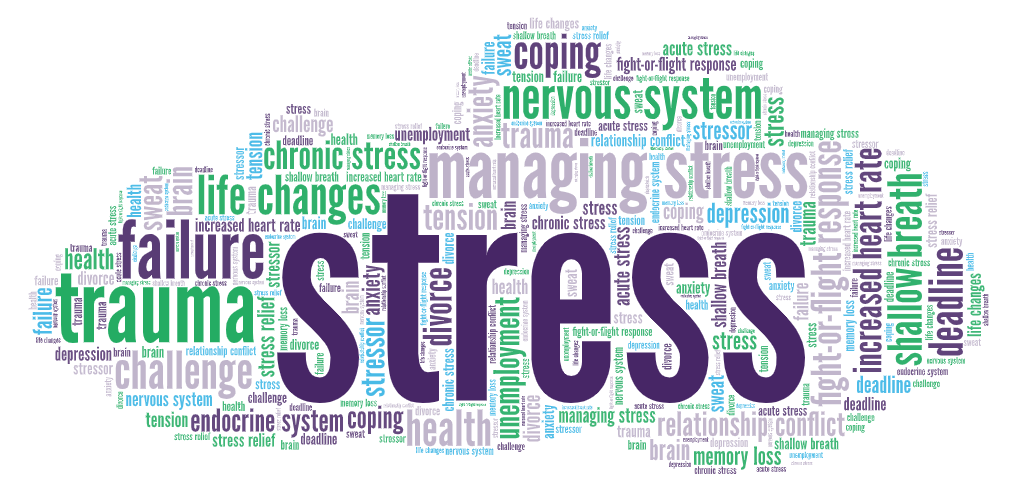What’s New In MENTAL HEALTH


Being mindful means paying close attention to your mind, body and soul.
It means being aware of what is happening with you in the moment, understanding your emotions, what you need in the moment, and practicing self-regulation.
Examples of our Mental Health Topics
- Together We Rise Group
- My Half of the Relationship
- Within My Control
- Reclaiming Me (Sexual Abuse)
- The Weight of My Weight
- Self-Care without Sacrifice
PROLONGED STRESS WEAKENS YOU
All women face a multitude of life stressors that affect their health. Stress is a major health issue that puts all at risk. The dynamics are complicated for Black women. Being marginalized, dealing with racial, gender microaggressions and instances of overt racism negatively impact self-esteem and causes significant stress overtime.

Effects of Stress
Nausea
Diarrhea
Headaches
Rapid heart rate
High blood pressure
Chest pains
Weak immune system
Sleep problems
Impaired concentration
Anxiety, overthinking
Constant worry
Poor judgment
Memory difficulties
Negative outlook
Indecisiveness
Lack of self control with food, alcohol and money
Short-tempered
Moody and irritable
Less gentle with self and others; unkind
Impatient
Not peaceful or joyful
CREDIT: Oreofeliving.com
Join the BWHM to help
de-stigmatize mental health
OVERCOMING THE STIGMA

The stigma of mental health in the Black community is prevalent but getting better. Many African Americans believe mental health counseling has merit and would recommend it for others, but it’s not necessarily for herself. “I will figure it out.”
African Americans are 20% more likely to experience serious mental health problems than the general population.
Most low-income African Americans who suffer from mental health issues only access treatment when they are incarnated, hospitalized or homeless.

11 COMMANDMENTS OF GOOD MENTAL HEALTH
- Believe you deserve to feel well.
- Embrace that mental health is essential to your overall well-being.
- Acknowledge your feelings thoughts and experiences. They are real.
- Nurture and protect your spirit.
- Trust the healing process; it takes time, support and work.
- You are worth it; make yourself a priority.
- Commit to regular fun and relaxing activities. They keep you grounded.
- Recognize and journal your mood changes.
- It’s OK to ask for help.
- Know your limits; set your healthy boundaries.
- Research and reach out to mental health resources.
CREDIT: Adapted from The California Black Women’s Health Project


VERY GOOD REASONS TO GO TO THERAPY
Your mental health deserves professional care just like your physical health. Therapy is so much more than sitting on a couch. There are misconceptions abound about what it means to talk to a mental health professional.
The need to talk about your emotions is seen as something to poke fun at, weak or shameful. That stigma is often why people don’t seek help in the first place.
But here’s the reality: Therapy is an incredibly useful tool that helps with a range of issues, from anxiety to sleep to relationships to trauma. Research shows that it’s incredibly effective in helping people manage mental health conditions and experts say that it’s worth it even if you don’t have a medical problem.
You’re experiencing unexpected mood swings.
If you’re noticing you’ve taken on a more negative mood or thought process ― and it’s persistent ― it might be worth talking to someone. This is typically a sign of a mental health issue. A therapist can help you get to the root of the problem. In therapy one has the opportunity to open up about your thoughts, feelings and circumstances in a confidential and safe environment.
You’re undergoing a big change.
This could be a new career, a new family or moving to a different city. New ventures are challenging and it’s normal to need assistance with that. Therapy often involves developing skills and strategies to reduce or manage life stressors.
You’re withdrawing from things that used to bring you joy.
A loss of motivation could signal that something is up. If you’re normally a social butterfly and you’re suddenly pulling away from your weekly sports league, for example, you could be experiencing something deeper. A therapist is trained to help you uncover why this might occurring and help you make sense of it.
You’re feeling isolated or alone.
Many people who deal with mental health issues feel like they’re singular in dealing with their experience. Group therapy could help with this or even just having a medical professional recognizing the validity of your emotions.
You’re using a substance to cope with issues in your life.
If you find yourself turning to drugs or alcohol as a way to deal with what’s going on in your life, it might be time to reach out. Addiction and substance abuse are medical conditions ― not character flaws. Understanding the biology of addiction and evidenced based treatment allows a person to gain the knowledge needed to fully address their issues.
You suspect you might have a serious mental health condition.
Serious mental illness affects almost 10 million adults in America in a given year. If you’ve been feeling off for a long period of time, reach out. Psychiatric conditions like bipolar disorder or schizophrenia rarely develop out of nowhere and people display signs for a while. Symptoms ― particularly ones like severe nervousness, apathy or intrusive thoughts ― should not be ignored. They’re treatable.
You feel like you’re losing control.
Feeling out of control and being stressed and anxious (worried, apprehensive, fretful, fearful) causes the body to produce the stress response. This particular feeling arises when people are dealing with a substance abuse or addiction issue. This lack of control often keeps individuals in a repetitive circle of substance use.
Your relationships feel strained.
Relationships ― no matter what kind ― are hard work. You’re not expected to have all the answers. If you’re with a partner, therapy can help the two of you explore better ways to communicate and any other issues that seem to pop up. Couples therapy can even be beneficial if your partner is hesitant and doesn’t end up attending the session.
Your sleeping patterns are off.
A key symptom of depression includes a disruption in sleep, whether it be too little or too much. If you’ve noticed any significant change, it might be time to investigate the underlying issue (this even goes for insomnia, which also includes therapy as a method of treatment).
You just feel like you need to talk to someone.
Bottom line: There’s nothing wrong with seeking professional help for any health issue, including mental health. To put it as actress Kerry Washington once did, “I go to the dentist. So why wouldn’t I go to a shrink?”
You’re having harmful thoughts.
Suicide and self-harm are completely preventable with treatment by a licensed professional. If you’re thinking of hurting yourself immediately, seek help right away through the National Suicide Prevention Lifeline or the Crisis Text Line.
CREDIT: Lindsey Holmes, Huffington Post






